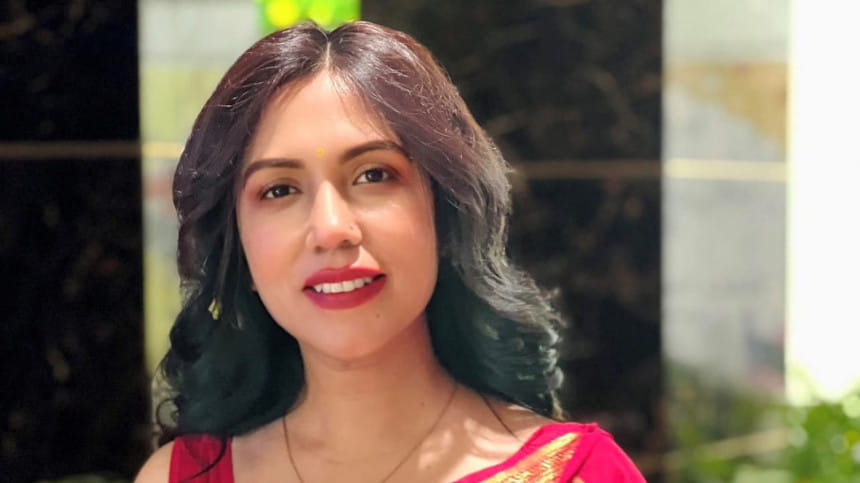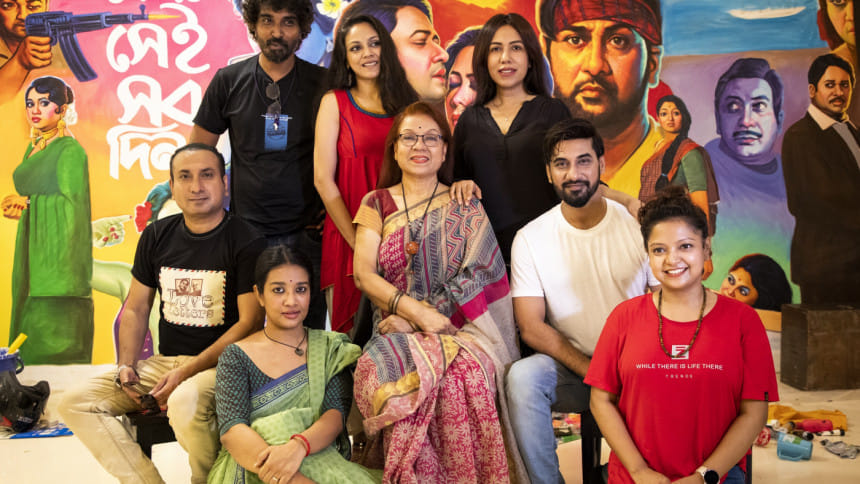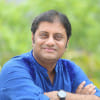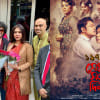People in Bangladesh have deep appreciation for their cultural heritage: Hridi Huq

The daughter of the eminent actor, academic, and playwright Enamul Haque, and theater personality Lucky Enam, Hridi Huq is carving her own path as a director, in the world of cinema.
With her highly-anticipated directorial debut, "1971 Shei Shob Din", set to hit the screens on August 18, The Daily Star delved into the inspiration, challenges, and vision that have shaped her journey as a filmmaker.
Can you tell us about the underlying message of '1971 Sei Shob Din'?
We take the audience back to 1971, where they can experience the taste of earning freedom. You see, the yearning and strive for freedom is a basic human tendency. It's not just a story of just one timeline; it's a story of moving forward. Overall, the movie portrays the spirit of our Liberation War.
It must have been challenging to choose such a significant story for your first movie.
Indeed, it was quite challenging. Great work often comes from choosing difficult subjects. "1971 Shei Shob Din" is based on a story by my father, Enamul Haque. Our theatre troupe had previously adapted this story for a drama, and I wrote the screenplay, expanding it with additional characters.
Bringing the year 1971 to the screen must have required meticulous attention to detail. How did you manage to capture that era?

Capturing the essence of 1971 was crucial. The environment and the way people spoke back then were different. We had to ensure that everything, including the costumes, makeup, and overall setting, reflected that era accurately. It was indeed a challenging journey. For instance, there is a scene with more than a thousand people, and to execute such a grand scene, a lot of effort and planning were required. But I believe it was necessary to create an authentic and immersive cinematic experience.
'1971 Shei Shob Din' is a government granted film. Can you tell us more about that?
We consider the grant as an honour because cinema is a significant art form that requires considerable resources. Our production company, Ticket, has been a great support, and despite facing challenges, we have come together to bring this movie to life. Unfortunately, I lost my father, Enamul Haque, during the making of the film, but his inspiration and spirit continue to guide us.
The song 'Jachchho Kothay' has been praised by the audience. Did you feel gratified?

"Jachchho Kothay" has received tremendous praise since its release. Kamruzzaman Ronnie and Ishrat Annie have lent their voices to the song, and I wrote the lyrics. Debojyoty Mishra from Kolkata composed the music with a lot of heart. The song has resonated well with the audience, and I have received a lot of positive feedback, which is truly heartening. Additionally, an Urdu song from the movie has also gathered a lot of appreciation.
With such dedication and hard work, what are your expectations from the audience regarding the movie?
We are very optimistic about the audience, especially the young people of our country. When they encounter a compelling story, they get excited, and the general audience appreciates good movies as well. People in Bangladesh have a deep appreciation for their cultural heritage, and we believe they will connect with "1971 Shei Shob Din" on a profound level.

 For all latest news, follow The Daily Star's Google News channel.
For all latest news, follow The Daily Star's Google News channel. 









Comments